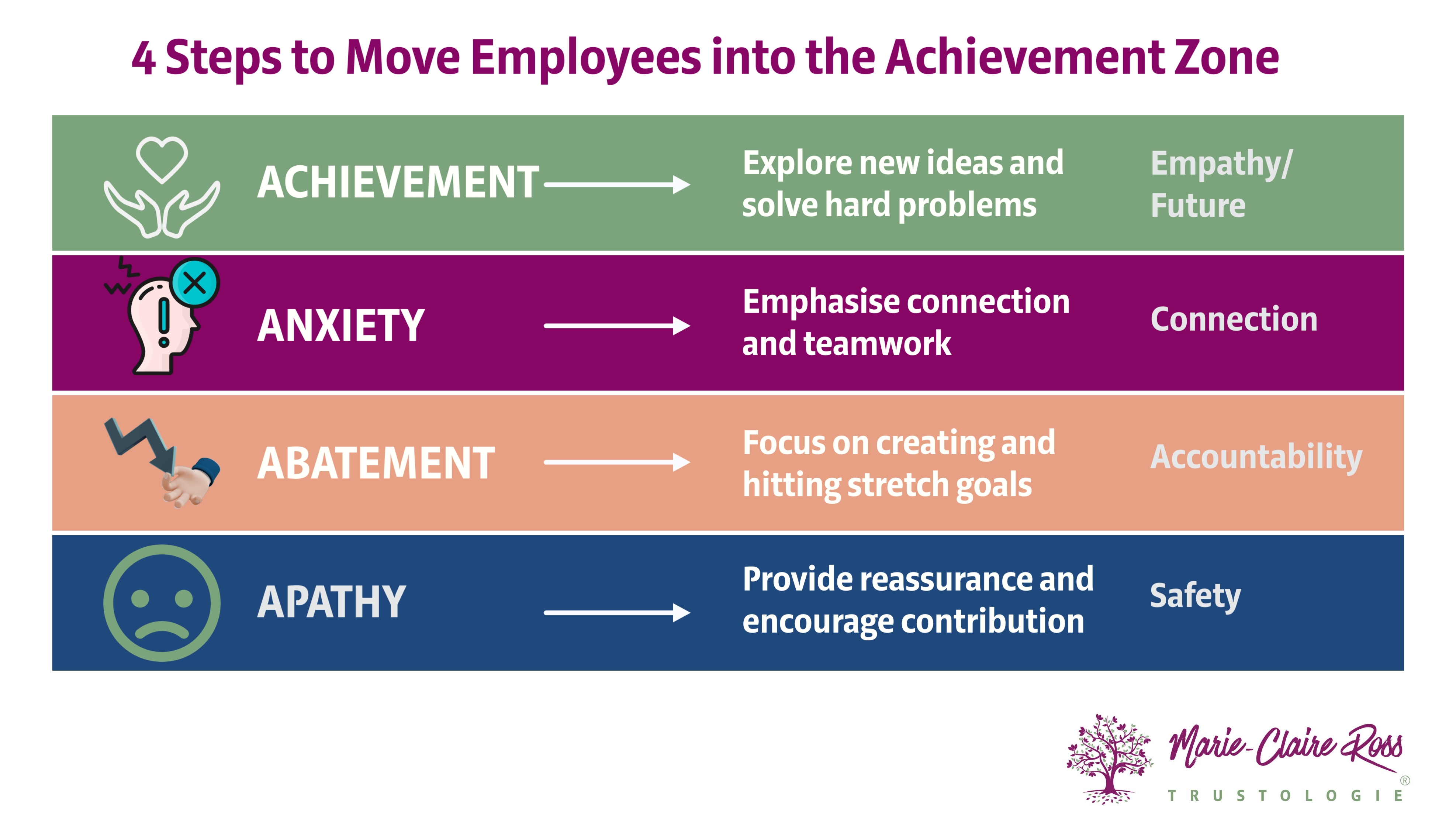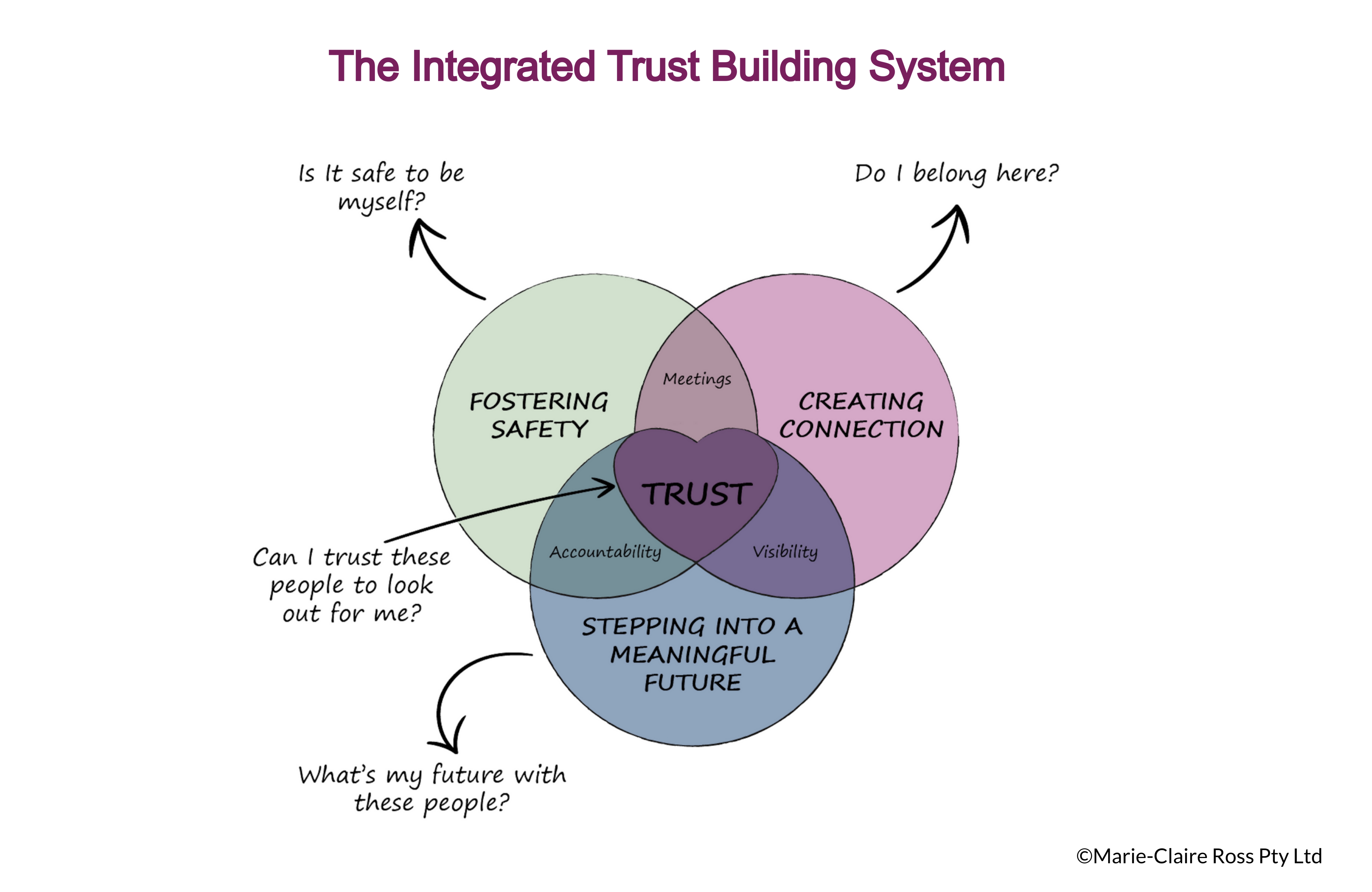11 min read
4 Practical Strategies for Better Emotional Management in the Workplace
I have a friend who often finds herself at the mercy of her emotions. Recently, she called me to rehash a confrontation she’d had with a group of...
Develop leaders, strengthen executive teams and gain deep insights with assessments designed to accelerate trust and performance.

Transform how your leaders think and perform with keynotes that spark connection, trust and high-performance cultures.

Explore practical tools, thought-leadership and resources to help you build trusted, high-performing teams.

Trustologie® is a leadership development consultancy founded by Marie-Claire Ross, specialising in helping executives and managers build high-trust, high-performing teams.

3 min read
Marie-Claire Ross : Updated on November 25, 2015
One of the things about being human is that we have a deep desire to feel connected to others (even if we deny it!).
At the heart of what we do, is the need to seek approval, help people and feel like we're part of a tribe. After all, tribes are the basic building block of any large human effort.
As Brendon Burchard says in the book, The Charge, neuroscience has found that we feel more alive when certain drives are activated. These being 1) To have control of ourselves and our environment, 2) to have competence in our environment, 3) congruence (to live in integrity with who we think we are), 4) the need to be caring (to care for people and be cared for) 5) the drive to feel connection (to connect deeply with others).
We feel happy when we have a sense of connection to others and when we are able to interact happily together.
And while some of us might deny that they need to feel accepted by their workplace peers, the truth is that job satisfaction is high when you have close friends in your workplace. Those who don't have any friends, don't stay at the job long. There's not enough to anchor them to the business.
Likewise, having a connection to your manager or supervisor is another sign that you will stay longer at your job. Research discussed in the book, First, Break all the Rules by Marcus Buckingham, found that when staff have a good relationship with their manager or supervisor they are more engaged at work and stay longer at their job.
Interestingly, in the great book Tribal Leadership by Logan, King and Fischer-Wright, they believe that great leaders actually develop triads within companies. When you talk to someone one on one, the relationship is called dyadic. In business, having lots of these actually works against creating a great culture.
Instead, the more evolved leader has lots of triadic relationships were they talk to two other people at the same time. These leaders introduce other team members to each other and get them working together. There's also no perceived back-stabbing or under-hand activities going on, when you create open relationship with three or more people.
So it's no surprise that companies that perform well at safety also have open and regular communication about safety. They also have safety leaders that are experts at creating genuine personal connections with other members in their team, as well as bringing other people together.
In fact, what you find with people in safety and management (supervisory) leadership positions that value connecting with others is that they do the following things:
In our Workplace Safety Culture Model, we discuss how people feeling appreciated by their company is so important for a high performing culture. Even if you don't feel valued by you direct manager, start treating others how you want to be treated and see how your team changes.
.

11 min read
I have a friend who often finds herself at the mercy of her emotions. Recently, she called me to rehash a confrontation she’d had with a group of...

9 min read
True leadership presence isn’t a performance or a set of charisma hacks; it is the felt experience of who you are being in the room. By cultivating...

13 min read
As teams return from their summer (or winter) break, you may notice subtle shifts in your team’s energy. Even if the end of year was positive, a new...

We are biologically wired to want to be with other people. It is a deep human need to feel like we belong and fundamental to human motivation.

Over the last two articles, we have covered how to foster psychological safety and create meaning for your team to improve performance. In the final...

There comes a time in every team, when the energy seems to dip.